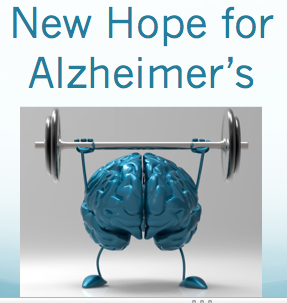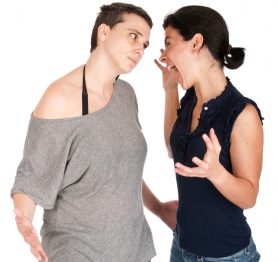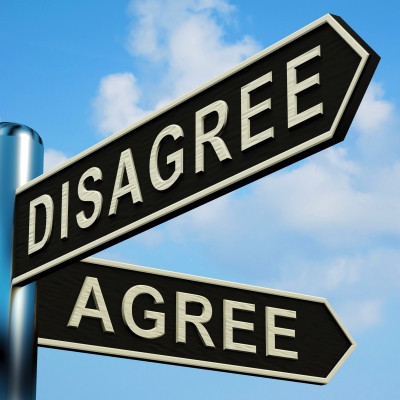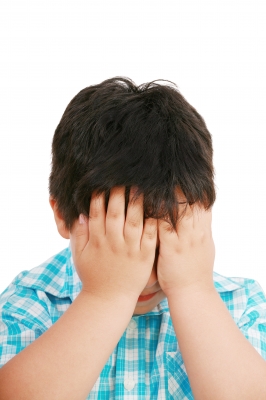Hidden Barriers to Happiness Blog
Have you always wondered about the invisible forces that affect your health, wealth, relationships and happiness?
For over 25 years, first as a neuroscientist, then epidemiologist, and now as a Holistic Brain Health Practitioner, I’ve been passionate about identifying underlying causes of mental and cognitive health challenges. This blog reveals my discoveries from my academic training, my passion for functional medicine, psychology, sociology, energy medicine and what I’ve learned from identifying secrets held by the subconscious.
If you want more health, wealth, better relationships and more happiness, find out what could be getting in the way! When you sign up to get my Top 10 Tips for a Happy & Healthy Brain, you’ll also get 2-4 newsletters per month featuring my blog, “Hidden Barriers to Happiness”.
What are you waiting for? Knowledge is power!
New Hope For Alzheimer’s
Do you know anyone who’s life has been cut short by symptoms of Dementia or Alzheimer’s?
Are they desperate to get their brains back?
You’ve probably heard that there is no cure for Alzheimer’s. But as a Neuroscientist, Epidemiologist and Holistic Brain Health Practitioner, I am more optimistic about prospects for recovery than most Western Medical Doctors. Why?
I’ve presented this information to several audiences, and was asked to make a video so that it can be shared. Since I made this video, thousands of early onset Alzheimer’s patients have recovered!
When your loved one won’t go to the doctor
Lois was starting to forget things. First it began with forgetting names or words in the middle of a conversation. She quickly dismissed it as a sign of old age, and decided that it wasn’t anything to worry about. But she started to get more embarrassed about her occasional memory lapses, and felt less and less inclined to leave her home for social activities.
She had been cooking for her husband John for years, but, her meals were becoming more bland. Sometimes she forgot vegetables, other times, she forgot the meat.
John noticed things weren’t normal, but he told himself, that these were occasional mistakes, and that it they weren’t a big deal. Things were changing slowly. Lois had good days and days where she’d forget things or lose things. But neither of them were ready to face the idea that there could be something much more serious that needed to be addressed!
 Then one day Lois went to the grocery store and didn’t come back for hours. (more…)
Then one day Lois went to the grocery store and didn’t come back for hours. (more…)
How Our Filter Messes With Our Relationships
Years ago, I had a housemate that I could never seem to please. While I harbored no ill will towards him, he seemed to be offended at everything I said or did, regardless of my intention behind it. If I tried to apologize or explain my intentions, he wouldn’t hear them. I started to feel like everything I did, regardless of my intent would be taken as being rude or inconsiderate, and I felt like I was walking on eggshells. It was exhausting!
In a calmer moment between us, I tried to explain to him that he (like everyone) has a filter, which paints our perspective about how we see the world. If there is someone that he has negative associations with in his past that I subconsciously remind him of, then he sees me through that filter. I believed he had an opinion of me that he was subconsciously trying to hold on to, because he wasn’t willing to hear that my intentions were not what he perceived them to be.
This filter we have can make or break relationships.
You know what I am talking about. You’ve met people that you feel like you have to walk on eggshells with. You know people that get easily angered or triggered regardless of your intentions, right? On the other hand, you probably also know people who you can laugh and joke around with, and even tease, and they seem to be fine with laughing at their own expense.
Often times this filter changes regularly in the same relationships as well, and it all depends on our mood and the context.
We often forget this about this filter, but because it is SO powerful at shaping our story, it is important that we fully appreciate its impact. Below is a true story about how it even shapes how we view an image!
A Powerful Strategy to Become the Best You
As I child I was told early on that I asked too many questions and had too many needs. My father was constantly angry, and he told me it was my responsibility to not make him so. So my response was to belittle my needs, and try to be less demanding.
Recently, I found myself in a similar pattern in a project I was working on, where I felt like I was walking on eggshells to fulfill the needs of someone else. I dismissed my own needs in favor of theirs and began getting resentful.
Yet I am a firm believer that we need to stand up for our rights and what we believe in, and that if we stay silent, we will lose our voice and our power.
I realized that I am caught in this conflict of not knowing, when is it OK to speak up, and when is it better to shut up?
I’ve recently noticed the pattern that people with healthier relationships do speak up. They feel more entitled to being treated well than I do, and there is even research to support this.
I was in the midst of pondering this conundrum, when I showed up for my yoga class. The teacher talked about setting an intention for our practice, but said that to face our current times, we need something deeper, something more long lasting, we need to concept of the sankalpa.
What is the sankalpa?
The Easiest Way to Fast Track Transformation
For most of my life, I hated myself. I could write volumes of books about what was wrong with me. The worse thing about this was that I felt hopeless to change so many of the things I hated about myself. Transformation felt slow, arduous and even impossible!
Now when I discover something I want to change about myself, for many things, I know how to get shifts in only a few hours!
For example, a few months ago, I was experiencing a slump in my business, despite increased speaking engagements and more exposure. I couldn’t figure out why, until I realized that my stress around the business slow down was effecting how I showed up with potential clients. Once I realized this, I was able to quickly let go of that stress, and better and engage and connect with potential clients.
So what did I do?
5 New Year’s Resolutions for your Mind & Brain:
As 2017 approaches, are you thinking about your annual New Year’s Resolutions?
Most people think of New Year’s Resolutions to start dieting or exercising, but there are plenty of other options as well. A friend of mine who had not been very good at staying at touch, recently apologized and told me that his New Year’s resolution was to be a better friend. I was deeply touched. So in honor of his creative New Year’s resolution, I present his, and a few more ideas that that you may not have considered.
7 Tips to Respectfully Discuss Divisive Topics:
America has grown increasingly divided, especially over the course of this last election, and I worry in today’s political climate, it could get worse before it gets better.
The increasing divisiveness has made me want to only spend time with people I agree with. But I’ve realized that my tendency to stay one sided only reinforces my own way of thinking, and does not help us bridge the widening gaps between us. Americans now more than ever need to find ways to bridge the divide. We need to be able to sit down and respectfully talk to people we don’t agree with, and find common ground. It is the only way we will be able to make the changes we need to benefit us all!
I am no diplomat, but I tend to seek out very diplomatic friends, so I asked them for their wisdom. With their support I’ve developed 7 tips we can take to respectfully discuss divisive topics.
3 Steps to Become Open Hearted
For most of my life, I was seen as indifferent, cold or standoffish. I always admired people who could be loving and open hearted the moment we met. But I never felt comfortable letting down my guard with people that quickly. I wondered, how could they trust someone so quickly? How could these people be so sure that they wouldn’t get hurt?
In those darker moments, I spent a lot of time in blame mode. I blamed my farther for his constant criticism, for making me feel never enough. I blamed my mother for her inability to defend me against his attacks or stand up to him. I labeled my dad as an angeraholic, and my mom as a victim, and I was so stuck in these thought patterns that I couldn’t change my relationship with them.
I’ve come a long way since then. Now when I think of my parents, I no longer harbor any of the long-standing resentment or blame. When I think of my friends, or people I’ve met, I can approach them with an open heart. Without any conscious intention of doing something differently, I’m smiling more, I’m happier to see people and I’m noticing more love coming my way as well!
So what have I done to become more open hearted?
5 Steps to Recover From The 2016 Election
Many people I know, including myself, are struggling to grapple with the implications of this election. Not only has a racist xenophobe won the election, but Republicans will now have complete control over every branch of government. For those of us concerned about racial tolerance, the environment, and preserving the social programs we do have, there are no words to describe how worried we are. And for those of us concerned about climate change, there is a growing terror about the Republican’s denial that global warming is man made, and what they will do when they have all the power.
So how can we process the results of this election? How can get back to the things that are important to us? How can we make the best of this situation?
Do You Have Election Stress Disorder?
Thanks to the negativity surrounding this year’s elections, election stress disorder is said by the American Psychological Association to be affecting 52% of Americans.
This diagnosis was originally coined in developing countries with more instability, and in 2016 is becoming a major epidemic in America.
What are the symptoms of Election Stress Disorder?
More people are feeling anxious and stressed. We are more prone to rage in driving, at work, and in relationships. As we take sides, we grow more divided and are unwilling to listen to the views of others. We become more contemptuous and less respectful. The stress of this election is putting real strain on relationships, both in the home and beyond.
What are the factors that are contributing to this?
We have one of the most contentious elections between the 2 major party presidential candidates in the last 50 years or more. They are also the 2 most unpopular candidates in modern day history. Both are using fear of the other, as a driving force to vote for them. Neither of them are trustworthy, and both are being investigated by the FBI or in Federal Court for corrupt practices. Neither of them inspire us to be our best, and very few people believe that they represent the views of the 99%.
 The stress of this election comes many factors: 1.) Many are voting out of fear of the other, and not for the change we want to see. 2.) Many of us are desperate for real change to help the 99%, and most of us don’t believe either candidate will make our lives better. 3.) There is tremendous fear of either a Trump or Clinton presidency and the ramifications of either taking office. 4.) The media excludes the voices of the 3rd party candidates, and perpetuates the idea that we only have 2 viable choices. 5.) The negativity and disparaging comments made by the campaigns and the media about others gives us subconscious permission to treat others similarly.
The stress of this election comes many factors: 1.) Many are voting out of fear of the other, and not for the change we want to see. 2.) Many of us are desperate for real change to help the 99%, and most of us don’t believe either candidate will make our lives better. 3.) There is tremendous fear of either a Trump or Clinton presidency and the ramifications of either taking office. 4.) The media excludes the voices of the 3rd party candidates, and perpetuates the idea that we only have 2 viable choices. 5.) The negativity and disparaging comments made by the campaigns and the media about others gives us subconscious permission to treat others similarly.
Our environment plays a very important role in how we treat each other. There are countries for example that are known to be more friendly than others, and much of it has to do with their media and how they treat each other. If we tolerate more rudeness, disrespect and put downs from our leaders and our media, we can expect to see that behavior grow. The people that are the most susceptible to these influences are people that have less control over their emotions. When the emotional circuits are triggered, the prefrontal cortex should kick in to help us to have control over our impulses. The prefrontal cortex however does not finish developing until about 25, and that can vary greatly, depending on your environment growing up, your mental health and your education. Because of the way the brain develops, and declines, children and the elderly are more susceptible to being emotionally triggered. Teachers are expressing a deep concern over the increase in bullying seen at schools, calling it “the Trump effect”. Stress also impacts our ability to use the prefrontal cortex, and thus our emotional inner child gets unleashed, and that can lead to more strife and tension in relationships.
Now that we know that the elections are stressing us out and negatively impacting our relationships, what should we do about it?













